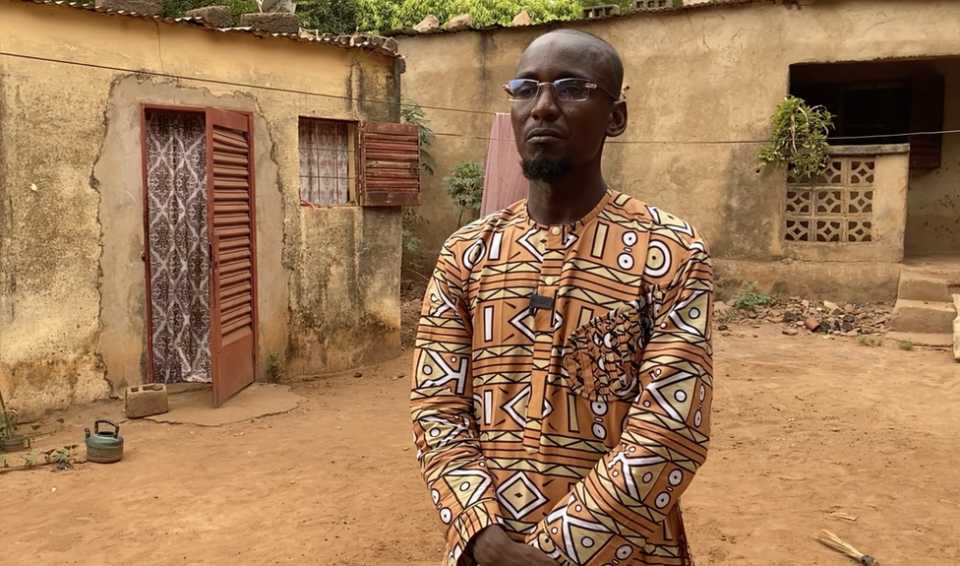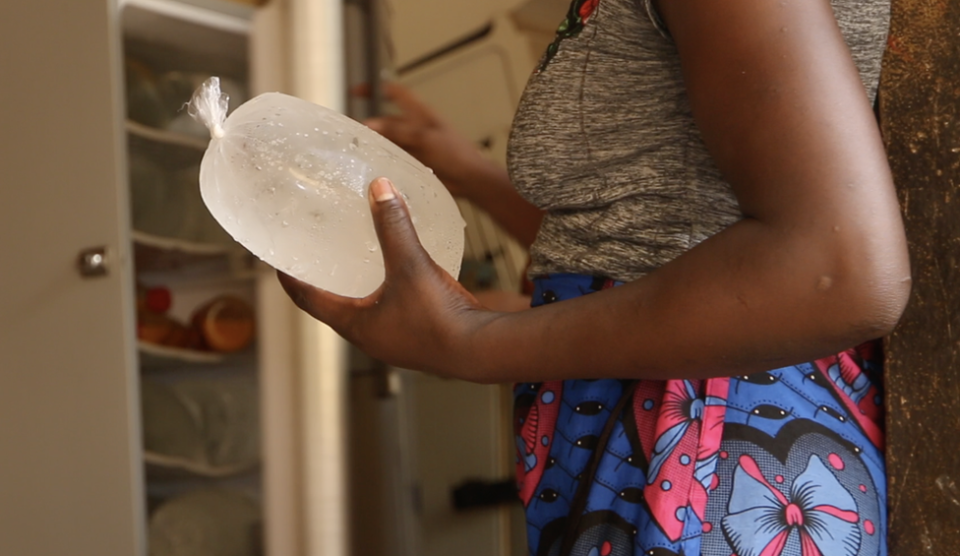Record heat means ice cubes now cost more than bread and milk in some parts of Mali.
“I came to buy ice because it’s very hot right now,” says 15-year-old Fatouma Yattara as he visits his local vendor in the capital, Bamako.
With no fridge working due to prolonged power cuts, she resorts to using ice cubes to preserve food and keep it cool during a heatwave that has seen temperatures rise to 48ºC.
It works to a certain extent, but price increases are making life even more difficult. “In some places it’s 100 CFA francs ($0.20; £0.16)” for a small bag, she says, “up to 300, 500 – it’s very expensive.”
This makes ice more expensive than bread – a standard baguette typically costs around 250 CFA.
It’s an even bigger struggle for Nana Konaté Traoré, who is now forced to cook every day instead of a few times a week.
“We often go a whole day without power,” she says, “then the food spoils and you have to throw it away.”
The problems began almost a year ago, with Mali’s state energy company unable to meet growing demand after accumulating hundreds of millions of dollars in debt in recent years. Many Malians do not have backup generators because it is expensive to refuel them.
No electricity means no fans at night, forcing many to sleep outdoors. And it is affecting people’s health.
“We really suffered,” says Soumaïla Maïga, a young man from the Yirimadio district, on the outskirts of Bamako.
“At night it can reach 46°C – it’s unbearable because I suffer from dizziness. I have to pour water on myself to cope.”

Since March, temperatures have exceeded 48ºC in parts of Mali, killing more than 100 people. The most vulnerable are the elderly and the very young.
“We were seeing around 15 hospitalizations per day,” says Professor Yacouba Toloba, who works at Bamako’s university hospital.
“Many patients are dehydrated – the main symptoms are coughing and bronchial congestion. Some also have difficulty breathing,” he told the BBC.
Schools in some areas closed as a precaution and people in the Muslim-majority country were advised not to fast during the Ramadan period, which recently ended.
“We need to plan more for these situations, which may return. This time it took us by surprise”, adds Professor Toloba.
The deadly heat wave is also affecting neighboring countries such as Senegal, Guinea, Burkina Faso, Nigeria, Niger and Chad.
Human-induced climate change is to blame for these extreme highsaccording to scientists at World Weather Attribution (WWA).
“The 5-day maximum extreme heat, as rare as the event observed in Mali/Burkina Faso, would have been 1.5°C colder and 1.4°C colder in the Sahel region if humans had not heated the planet by burning fossil fuels,” he said. your latest report says.
With temperatures expected to remain above 40ºC in Bamako in the coming weeks, people are trying to adapt to the new normal.
As the sun sets in the capital, Mrs. Konaté Traoré takes several large rugs to her yard and lays them out.
“We have to stay outdoors all the time because of the heat. When it’s hot I get sick,” she says.
“It’s not easy at all.”



































